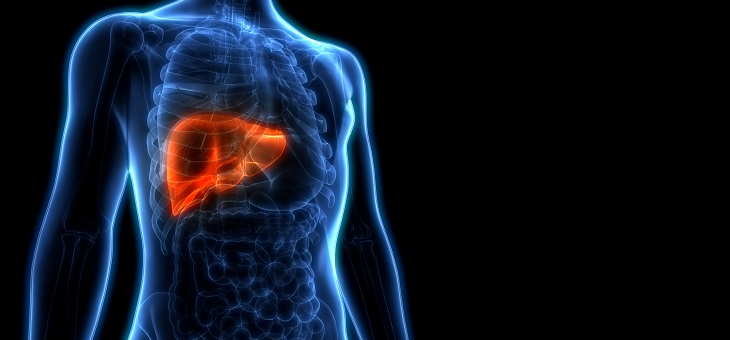Liver cancer is the 16th most common cause of cancer in Australia.
According to government figures, from 1982 to 2019, liver cancer incidence rates increased more than for any other cancer, although liver cancer survival has improved since 1982, jumping from a 50 per cent chance of survival to 70 per cent.
As part of your health regime, it pays to keep an eye out for this often-silent killer.
But first, what does your liver do?
It’s a powerhouse organ that’s very good at multitasking. As well as removing toxins, it also processes food nutrients, produces important proteins, is involved in producing blood clotting factors and regulates body metabolism.
Frankly, there are too many functions to list here, but it’s safe to say any damage to your liver can dramatically affect your quality of life.
Read: Can a detox help your liver?
Like many cancers involved with organs, there often are no obvious early warning symptoms. However, some of the early symptoms are a lack of appetite, jaundice, pale bowel motions, weight loss, nausea, lump below your right rib cage, pain in the upper right side of your belly or near your right shoulder and swelling around your liver. If you have one or even a few of these symptoms it might be time to visit the doctor.
As well as a physical examination, your doctor may also order some blood tests, take a family history, order scans or even a biopsy to confirm any diagnosis.
According to webmd.com there are some diseases that can make you more likely to get liver cancer, including hepatitis B or C, non-alcoholic fatty liver disease, and liver diseases you are born with including hereditary haemochromatosis, which is a genetic iron overload.
Read: How to reverse liver damage
Of course, another cause is drinking too much alcohol over many years, since cirrhosis is also a leading cause of developing cancer.
Other precursors to liver cancer are type 2 diabetes, smoking, being overweight or having a condition called metabolic syndrome – a cluster of conditions that occur together, including high blood pressure, high blood sugar, excess body fat around the waist – and high cholesterol or triglyceride – a type of blood fat – levels.
Toxins can also cause liver cancer, including aflatoxins, a type of mould that grows on crops that are not stored properly, arsenic and vinyl chloride, a chemical used to make some kinds of plastics.
The most common type of liver cancer is hepatocellular carcinoma (HCC) which happens in the main cells of your liver. HCC usually causes one tumour that grows over time, but if you have both cirrhosis and HCC, the bad news is you probably have many small tumours throughout your liver.
There are two types of liver cancer – primary, which means the cancer started in the liver, and secondary, which means the cancer has spread from another part of the body.
Read: Australia’s bowel screening program saved my life
The four stages of liver cancer are: stage 1, your tumour hasn’t spread; stage 2, one tumour that’s spread into the blood vessels or more than one tumour, but all are smaller than five centimetres and stage 3, one tumour that’s spread to major blood vessels or nearby organs, or more than one tumour and at least one of them is larger than five centimetres.
Treatment depends on what size the tumour is, how many there are, your overall health and age.
Early diagnosis may mean it can be simply treated by ablation, where the tumour is zapped using radio waves and microwaves or even frozen using nitrogen. Ironically, doctors can also use this method to put pure alcohol into the tumours to destroy them.
Other treatments include radiation, chemotherapy, surgery including transplant, although this is rare.
Are there any measures to completely prevent it? Unfortunately, no but you can lower your chances by getting the hepatitis B vaccine, limiting the amount of alcohol you drink, avoiding using intravenous drugs and if you do, always using clean needles. Also, get any tattoos and piercings at reputable, safe, clean providers.
If you enjoy our content, don’t keep it to yourself. Share our free eNews with your friends and encourage them to sign up.

